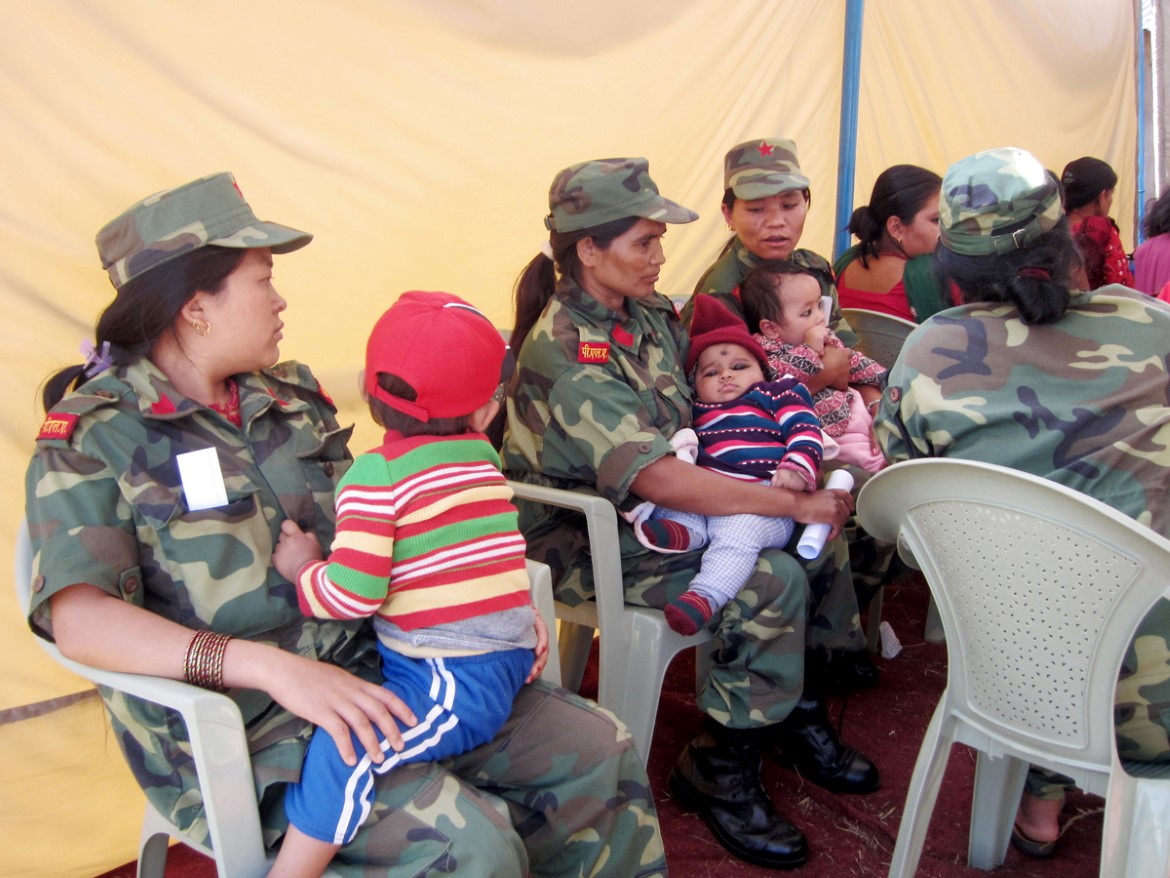
A gender perspective on demography and conflicts
The Research Council of Norway, Norad and the Ministry of Foreign Affairs invites you to a conference presenting results and policy recommendations from research on population, gender, peace and security.
The conference will be opened by
- Laila Bokhari, State Secretary, Ministry of Foreign Affairs
- Jon Lomøy, Director General, Norad
- Jesper W. Simonsen, Executive Director, Research Council of Norway
The conference is divided in two sessions:
Session 1: Population, economics, poverty and reproductive health
With financial support from the William and Flora Hewlett Foundation, as well as Norad, the ECONPOP activity was launched in 2009 to help understand how poverty, economic growth and cultural conditions interact with reproductive health and population dynamics in low-income settings, particularly in the sub-Saharan regions of Africa.
Six research projects have obtained funding under this scheme. This session will present the main results from these now concluded projects with a particular focus on their implications for future policies.
The session will start with Marlene Lee, Senior Programme Director at the Population Reference Bureau (PRB), Washington DC, who will present a policy brief based on the six ECONPOP-funded projects.
PRB is charged by the Hewlett Foundation to coordinate the Population and Poverty network (PopPov) of which the ECONPOP-researchers are part of. This will be followed by short presentations by a representative from each of the projects, who will sit together in a panel.
Session 2: Women, Peace and Security
The session will be opened with an address from Maria Eriksson Baaz, Professor at the University of Gothenburg and senior researcher at the Nordic Africa Institute. Professor Eriksson Baaz has longstanding experience on researching African security, politics, gender and violence.
Baaz will address knowledge production on gender and conflict and highlight the gaps. She will also raise the topic of an increasing gap between research and policy, particularly in relation to conflict related sexual violence. Baaz will probe into how political agendas shape which issues are explored or not. Although necessary, political agendas can limit how we think about gender and conflict, and how we try to redress its harms.
The research programme NORGLOBAL has been funding research projects on women and gender equality since 2009.
Six projects concentrating on Women, Peace and Security in vulnerable states of Afghanistan, Somalia, Sudan, DR Congo and post-conflict states of Colombia and Liberia will present their results and policy implications.
A policy brief on 11 projects and their contribution to the field of Women, Peace and Security will also be presented.
Program
08.00-08.30 Registration – coffee/tea
08.30-09.00 Conference opening
-
Jon Lomøy, Director General, Norad
-
Laila Bokhari, State Secretary, Ministry of Foreign Affairs
-
Jesper W. Simonsen, Executive Director, Division for Society and Health, Research Council of Norway
09.00-11.00 Session 1: Population, economics, poverty and reproductive health
- Policy recommendations from ECONPOP projects
Marlene Lee, Senior Programme Director, Population Reference Bureau
- Speed presentations from ECONPOP projects
- Fertility and Poverty: The role of gender and reproductive health
George Odwe, Population Council, Nairobi - Risk, Vulnerability and Child Mobility in West Africa Cases in Senegal and Benin
Gilberte Kedoté Hounsounou, World Bank, Ouagadougou - West African Reproductive Health Costs: An in depth study into associations between poverty and access to emergency pregnancy health care
Fatoumata Ouattara, Institut de Recherche pour le Développement (IRD) - Gender of children, education and occupational choice in Nepal
Magnus Hatlebakk, Chr. Michelsen Institute (CMI) - Girls' Economic Empowerment - The Best Contraceptive? A Randomized Controlled Trial in Tanzania
Vincent Somville, Chr. Michelsen Institute (CMI)
- Fertility and Poverty: The role of gender and reproductive health
- Panel discussion "Policy implications of ECONPOP research" and Q&A
Panel chair: Jan Monteverde Haakonsen, special adviser, Research Council of Norway
11.00-11.20 Short break – coffee/tea/light refreshments
11.20- 13.20 Session 2: Women, Peace and security
-
Gender and conflict: dominant stories and uncomfortable questions
Maria Eriksson Baaz, professor Gøteborg University and senior researcher Nordic Africa Institute -
Policy recommendations from research projects on Women, peace and Security from NORGLOBAL
Henning Melber, Senior Research Associate, The Nordic Africa Institute and programme board member, NORGLOBAL - Speed presentations from projects on Women, Peace and Security
- Gender in Politics in Somalia: Access and influence in a post-conflict state
Cindy Horst, PRIO - Mapping Gender-based Violence and Access to Justice: Retraditionalization in Liberia
Morten Bøås, NUPI - Female Empowerment in Eastern DRC: A PRIO-ICART Partnership
Christine Amisi, ICART/PRIO - Caught between Rape and Adultery: Women's Fight against Sexual Violence and for Justice in Northern Sudan
Liv Tønnessen, CMI - The Significance of Political Organization and International Law for Displaced Women in Colombia: A Socio-legal study of Liga De Mujeres
Kristin Bergtora Sandvik, PRIO/UiO - Violence against women and criminal justice in Afghanistan
Wazhma Frogh, RIWPS/CMI
- Gender in Politics in Somalia: Access and influence in a post-conflict state
- Panel discussion on Policy implications and way forward and Q&A
Panel chair: Torunn Tryggestad, senior researcher and Director of the PRIO Centre on Gender, Peace and Security
- Concluding comments
Ministry of Foreign Affairs
- LUNCH and MINGLING
